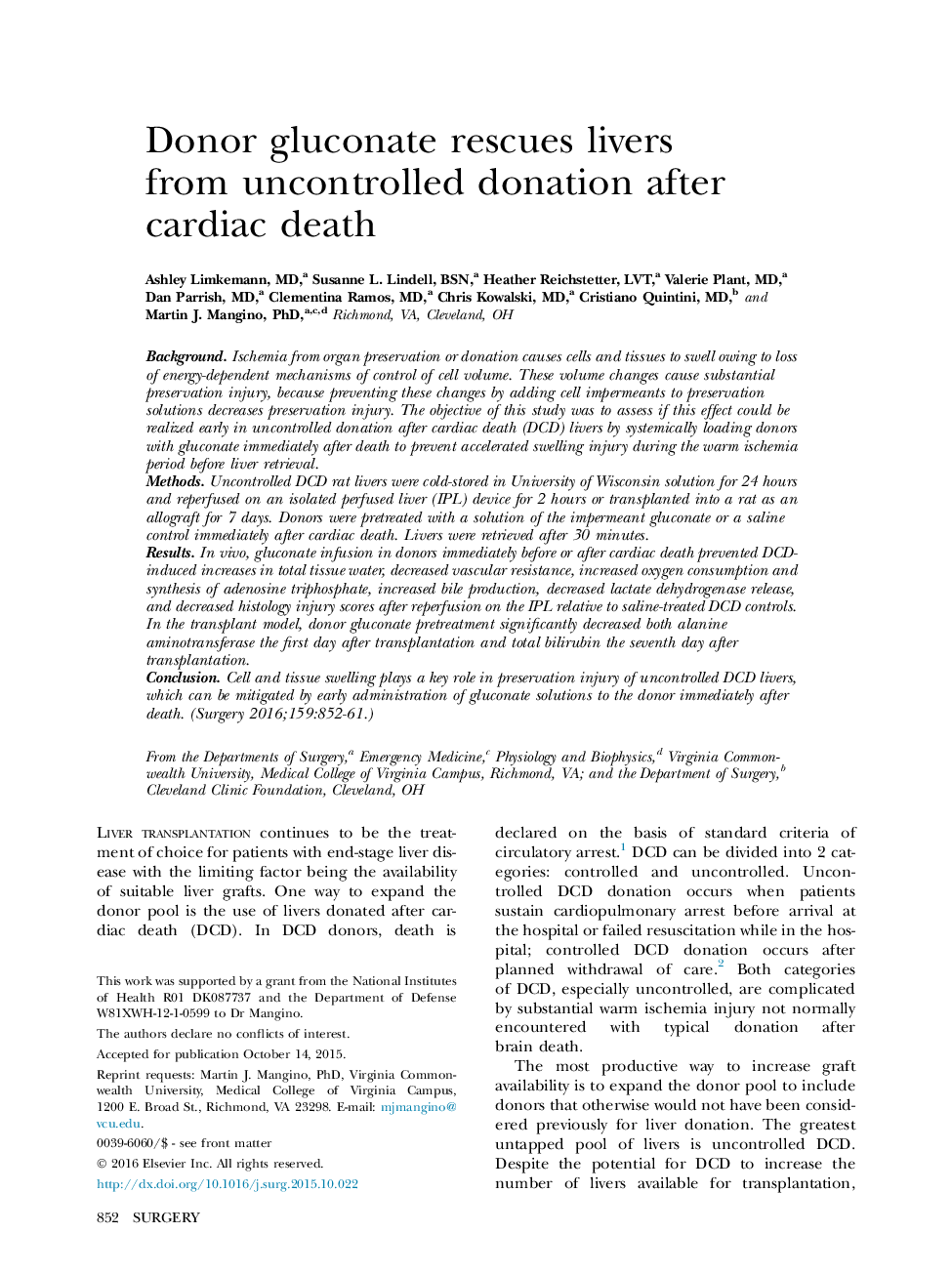| Article ID | Journal | Published Year | Pages | File Type |
|---|---|---|---|---|
| 4306816 | Surgery | 2016 | 10 Pages |
BackgroundIschemia from organ preservation or donation causes cells and tissues to swell owing to loss of energy-dependent mechanisms of control of cell volume. These volume changes cause substantial preservation injury, because preventing these changes by adding cell impermeants to preservation solutions decreases preservation injury. The objective of this study was to assess if this effect could be realized early in uncontrolled donation after cardiac death (DCD) livers by systemically loading donors with gluconate immediately after death to prevent accelerated swelling injury during the warm ischemia period before liver retrieval.MethodsUncontrolled DCD rat livers were cold-stored in University of Wisconsin solution for 24 hours and reperfused on an isolated perfused liver (IPL) device for 2 hours or transplanted into a rat as an allograft for 7 days. Donors were pretreated with a solution of the impermeant gluconate or a saline control immediately after cardiac death. Livers were retrieved after 30 minutes.ResultsIn vivo, gluconate infusion in donors immediately before or after cardiac death prevented DCD-induced increases in total tissue water, decreased vascular resistance, increased oxygen consumption and synthesis of adenosine triphosphate, increased bile production, decreased lactate dehydrogenase release, and decreased histology injury scores after reperfusion on the IPL relative to saline-treated DCD controls. In the transplant model, donor gluconate pretreatment significantly decreased both alanine aminotransferase the first day after transplantation and total bilirubin the seventh day after transplantation.ConclusionCell and tissue swelling plays a key role in preservation injury of uncontrolled DCD livers, which can be mitigated by early administration of gluconate solutions to the donor immediately after death.
